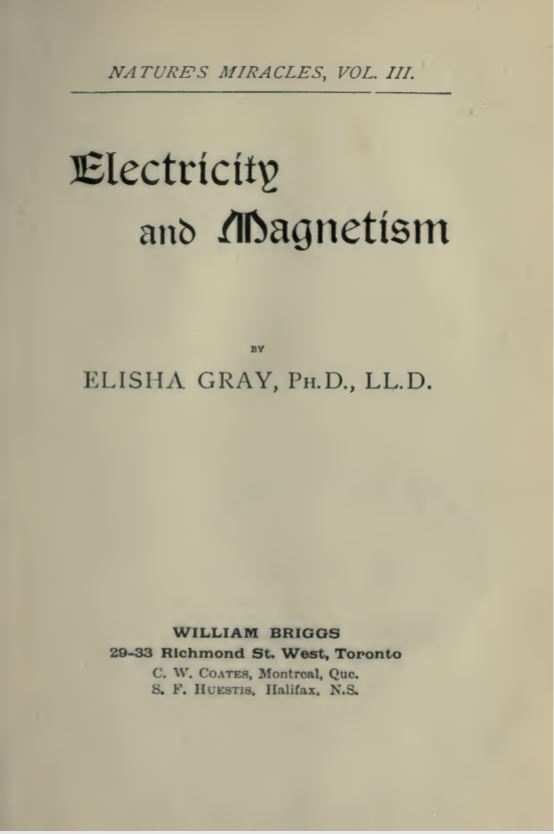1899: Nature’s Miracles
The chicken or the egg? East Coast or West Coast? Paper or plastic? Coke or Pepsi?
Of all the so-called “great debates,” on issues large and small, surely one of the most enduring and heated of them all is the debate of science vs. religion. And of the numerous inventions that Graybar co-founder Elisha Gray logged during his lifetime, surely one of the most underrated creations of them all is his three-volume set of “familiar talks on science,” titled Nature’s Miracles.

These books appear to be his attempt to reconcile the widespread battles between science and religion that raged throughout the 19th century. Even the title of the trilogy is a direct response. Gray wrote in his introduction:
Some may claim that it is unscientific to speak of the operations of nature as “miracles.” But the point of the title lies in the paradox of finding so many wonderful things as wonderful as any miracle that was ever recorded subservient to the rule of law.
In World-Building and Life, Energy and Vibration, and Electricity and Magnetism, Gray used plain language to offer ordinary readers a chance to learn more about science:
All departments of science are simply branches of one great science, and all phases of human activity are touched by it. The preacher is a better preacher, the doctor a better doctor, the lawyer a better lawyer, the editor a better editor, the business man a better merchant, and the mechanic a better workman, if they follow scientific methods.
In the third volume, he tackled his life’s work, hoping to “plant a few seedthoughts in the minds of his readers that will awaken an interest in the study of natural science; and especially in its most fascinating branch Electricity.”
One of his most inspiring passages could have just as easily been written today, and one that can push us all to look forward:
…This is truly an electrical age and the dawning of a new era. How many, many things there are, familiar to the children of to-day, that were not even imagined by the children of twenty-five to fifty years ago. …
About twenty years ago there were evidences of the beginning of a new era in electrical development. At no time in the history of the world has wonder succeeded wonder with such rapidity, producing such astounding results that have revolutionized all our modes of doing business and all of the operations of commercial and domestic life, as during the last two decades…
And yet there are those who cry out against modern inventions and modern civilization, and are constantly quoting the days of their grandfathers and great-grandfathers when “life was simple” and there was ” time to rest.” …
Every man can help in this grand progress, if not by research and positive thoughtpower, at least by grateful acceptance and realization of what is gained. Look forward!



